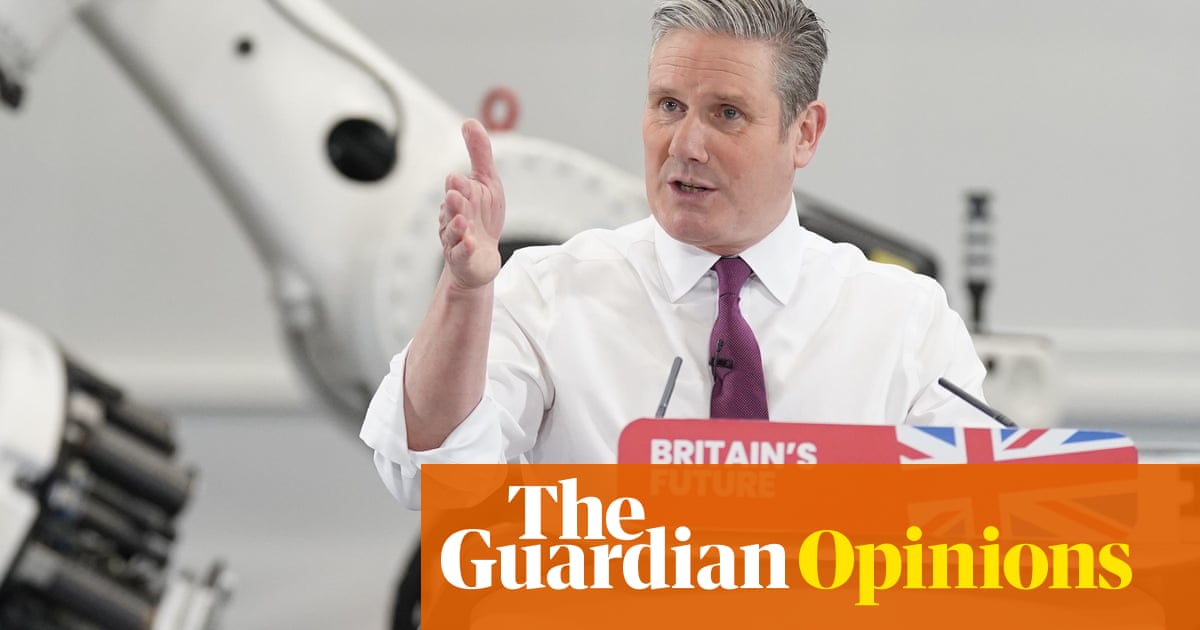
The often messy end of a party’s long hold on power is one of the key rituals of British politics. Voters who made that party’s ascendancy possible now get revenge on ministers who have disappointed them. Journalists get lots of dramatic downfall stories. A new regime finally enters Downing Street, with fresher protagonists and policies. Our electoral system, which has often helped keep the old regime in office too long by disproportionately rewarding its share of the vote, suddenly seems vindicated. And the country feels renewed, for a few months at least.
The years within living memory when such transformations have happened are mythologised by the main parties and their most loyal supporters: 1945, 1964 and 1997 for Labour’s return to power after long absences; 1979 and 2010 for comparable Tory breakthroughs. In many ways, these changes of government prevent our rigid old democracy from stiffening up entirely.
This year looks likely to be another turning point. Yet this time, unusually, both the political era that seems to be ending and what is likely to replace it still have an undefined quality, despite the Tories’ seemingly endless tenure and Labour’s long preparation for power. What will the mood of Britain be when and if the Conservatives finally lose office – and in the politically crucial months afterwards? It is surprisingly hard to say.
One reason for this is Keir Starmer’s tight-lipped approach to being opposition leader. As the election has neared, expectations of what his party could do in government have been managed downwards by Labour, not upwards. The difficulties he will face in Downing Street have been emphasised. Rarely has a party with such a poll lead sounded so downbeat.
Yet there is a bigger, less examined reason why the morning after the next election is still hard to imagine. The past 14 years has been one of the strangest periods in our modern political history. We have had five prime ministers, four Tory leadership contests, two hugely divisive referendums on EU membership and Scottish independence and a frantic succession of different, sometimes clashing government philosophies: from relative social liberalism to authoritarianism, technocratic elitism to crude populism, raising taxes to cutting them, shrinking the state to expanding it, favouritism for the home counties to levelling up for the north, grandiose alliances with distant countries to inward-looking English nationalism.
What has all this added up to? Apart from keeping the Tories in office – often by small electoral margins – and rewarding an ever-shifting mix of rightwing interest groups, it has often been hard to say. Increasingly, Conservative politicians and commentators express disappointment at what the party has achieved. As the Tory MP Danny Kruger put it in private comments last autumn, which were leaked this week: “The narrative that the public has now firmly adopted – that over 13 years things have got worse – is one we just have to acknowledge and admit … If we leave office next year, we [will leave] the country sadder, less united and less conservative than when we found it.”
Usually, long governments have more depth and coherence – an underlying project that sustains and outlives them. Margaret Thatcher deregulated British capitalism and regulated trade unions. Tony Blair gave selective but decisive state backing to liberal social values. By the end of their governments, these policies had been widely accepted, consciously or not – even by some who had initially opposed them. After Thatcher, trade unionists reluctantly adjusted to the fact that unions had less leverage. After Blair, traditionalist Britons gradually conceded that same-sex couples should be able to form civil partnerships.
It seems improbable that Brexit or austerity, the Tories’ two central policies since 2010, will ever be accepted in the same broad way. The party has certainly changed the country – from our public services to our life expectancy to our international status – but it has destroyed much more than it has created.
So the departing Tories will leave us with a void. Some of that void will be filled, on election night and for a few days or weeks afterwards, by sheer delight and relief for millions that their chaotic reign is over. When the Conservatives were last ejected from Downing Street, 27 long years ago, a whole book was written about the joy of election night for non-Tories, the journalist Brian Cathcart’s Were You Still Up for Portillo?
Yet even if the coming election brings a similarly satisfying cull of rightwing MPs, some of the worst offenders of the last 14 years, such as Boris Johnson and the architect of austerity, George Osborne, have long since fled the scene of the crime, leaving parliament for better-paid careers. Politicians often try to avoid accountability, but since Johnson’s premiership, the Conservatives have done it more consistently and shamelessly, and have made voters even more cynical about politics than they were already. All the Tory U-turns, policy failures, hollow promises and concocted official “facts” have had the same effect since 2010. More than previous overstaying governments, they have drained our politics of credibility.
In office, Starmer could turn these low expectations to his advantage. His new year speech last week promised “a politics that treads a little lighter on all of our lives” – an image he also used in his 2023 party conference address – with less aggressive rhetoric and more “practical achievement”. It does not sound very exciting, compared with the rightwing and leftwing radicalism of the past dozen years, but it may be welcomed by those Britons who want the government to be functional enough to forget about.
For his first few months in Downing Street, at least, Starmer may get a popularity boost for being steady and inoffensive compared with his predecessors. After periods of turmoil, British voters have a recurring appetite for such premiers: John Major in the 90s, Jim Callaghan in the 70s, Stanley Baldwin in the 20s and 30s.
Yet this time the rewards for steadiness may be more temporary. Digital technologies and global crises that did not exist in the days of Major, Callaghan and Baldwin have accelerated and fragmented politics. While voters may say, and even think, that they want calmer, less adversarial politicians, many are addicted to the opposite. Moreover, the stability Starmer is offering may itself be disruptive, as it challenges economic interests that for years have benefited from an unstable politics and society.
The feverish political mood of the past decade is receding now. But it will be back.
Andy Beckett is a Guardian columnist












